5 Reasons Gardening is Good For You
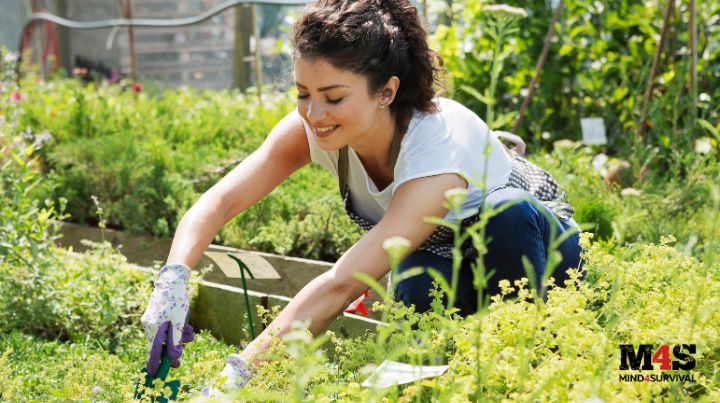
My house is covered in almost a foot of snow, but in a few more weeks, I'll be starting my first seeds for this year's garden. Yes, it is that time already. And if you're looking for ways to improve your life in 2023, here are five reasons to think about starting to grow some of your own food.
#5 Entertaining Children
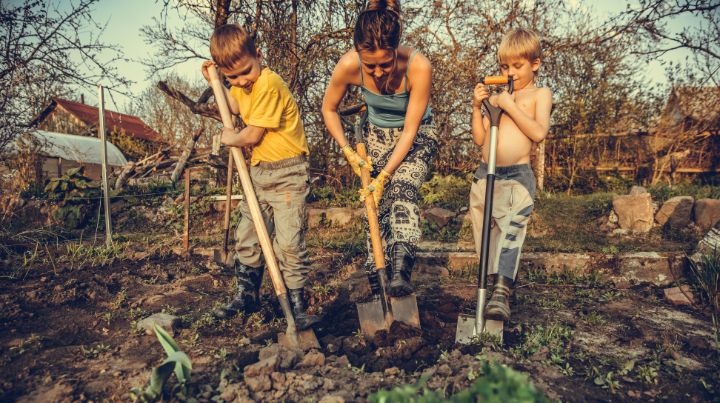
This may seem most applicable to parents with small children, but it can apply to anyone. When I was little, my family lived next door to an older married couple that must have spent hundreds of dollars on potted flowers every year. Their porch was stunning; I loved just looking at it. My neighbors didn't intend to entertain the surrounding children, but they did.
Once I became a parent myself, I started growing vegetables partly to save money and partly to have something to do with three preschool-age children. I took a lot of biology and ecology classes in college and have always been fascinated by life cycles; gardening was a way to share that with my children. If you have the space to compost, that adds an extra dimension because the kids learn how to feed the soil to feed the plants.
As a bonus, kids will eat almost anything they pick themselves. One of my children was notoriously picky, especially regarding vegetables. But he would eat what he could pick because he thought it was cool.
Gardens also provide an opportunity to teach about failure. Some things just won't work out each year. Either you'll plant the wrong variety, or grasshoppers will come, or you'll get a hailstorm, or something else. Kids need to see adults fail, reflect on what went wrong, and then try again. Gardening is an excellent vehicle for learning resilience.
#4 Great Flavor
If you stick with it and succeed, one of the most noticeable and immediate rewards is the flavor of freshly-picked veggies. A lot of this has to do with the fact that you can pick your produce at the exact right time. You can let tomatoes ripen on the vine and harvest lettuce the day you eat it.
Some vegetables, like carrots and celery, taste noticeably better after a light frost. This is because the cold weather triggers the plants to convert some of their starches into sugar.
And, of course, the vegetables aren't sitting in the back of trucks for hours or days. All this adds up to more flavorful meals.
#3 Mental Health

The positive effects of time spent outdoors is well documented. The Japanese have been researching forest bathing since the early 1980s. Time spent outdoors is correlated with lower blood pressure and improved immune response function.
Gardening can be good for your mental health because it forces us to develop different mental habits from those commonly related to modern life. It forces us to be patient—plants won't grow faster just because you want them to. Gardening tunes us into nature's rhythms and cycles, giving us stability and a sense of place.
This can be beneficial for anyone, but it is particularly helpful to those grieving or dealing with stress disorders. In Jonathan Shay's book about treating Vietnam veterans with severe PTSD, Achilles in Vietnam, he discusses the inability of many people to focus on something other than their trauma. However, being surrounded by something physically natural and beautiful has been shown to help people climb out of their mental trenches.
And, of course, I would never suggest that someone ditch their meds and professional therapy to play in the dirt. But dealing with grief and trauma usually requires a variety of techniques, and gardening can be one of many ways to help a loved one heal.
#2 Saving Money
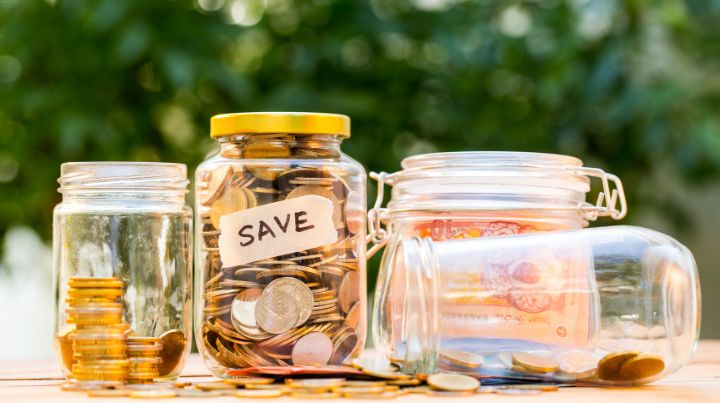
People that become proficient at gardening typically find that it saves money. This is particularly true with children. Not only because kids eat a lot but because time spent playing, learning, and working in the garden is time not spent paying for various other forms of entertainment.
This is especially important to think about right now. There are many funky things going on in the world, and it is tough to make long-term plans. Inflation has been all over the place. Gas prices got horrible last summer, went down because of the releases from our Strategic Reserve, and are now starting to climb again. Feed prices have been increasing. Organic specialty feed has been growing somewhat; the regular feed has doubled in price over the past year, and if fuel prices don't come down, feed prices won't either. This means food prices probably won't drop significantly any time soon.
Control Your Food Through Gardening
Rather than panic over big-picture events, it's better for you to focus on what you can control, and you probably have more control over your food than you think. Even if all you have is a balcony, you have options.
These days, I have enough acreage to have a large garden and livestock. Ten years ago, I was in the suburbs on the Gulf Coast, but even in my suburban lot, I had enough garden space to put a dent in my grocery bill. I've grown tomatoes, cucumbers, and basil in pots on decks of various apartments and rental houses; they look nice and make a nice Mediterranean salad.
If you need to save money, think about what vegetables you spend the most money on and what can realistically grow in your area. Snap peas, cherry tomatoes, and fresh basil can get expensive quickly, but they are pretty easy to grow in most climates as long as you plant them at the correct time.
Do some research first to minimize failures. There will be failures no matter what, but some research beforehand can make a big difference. Check your local library for gardening books. They will typically have whatever is most useful for your region, and you can find advice on varieties and timing.
Timing is Important!
I feel like the timing is not emphasized enough, but getting it correct can make a huge difference in your yields, and understanding how much it changes from region to region is vital. For example, I grew up in the Midwest, and we planted pretty much everything between Mother's Day and Memorial Day. Then I moved to the Gulf Coast and realized that if you plant tomatoes on Memorial Day, you will get nothing because the heat prevents flowers from setting. Tomato plants got put out on Valentine's Day down there, if you wanted them to produce anything.
If you have space, and if you don't plan to move soon, many perennial plants will supply you with fresh veggies year after year with minimal effort. I planted asparagus in 2014, and yes, I had to wait until 2017 to harvest, but every spring now, I reliably get several servings of asparagus a week for two months. I also usually let one or two lettuce plants go to seed every year so that I have fresh lettuce in the spring, as well.
Additionally, if you compost your food waste, you may also save money on fertilizer. Gardening is a habit that probably won't pay for itself the first year, but sticking with it can save you a great deal of money in the long term. Of course, you'll save money on the food itself; you also save money because it's one less thing you need to run to the store for. If gas prices spike again, which they may, being able to grab a nice snack or side dish from your yard becomes a lot more meaningful.
#1 Increasing Your Skill Set
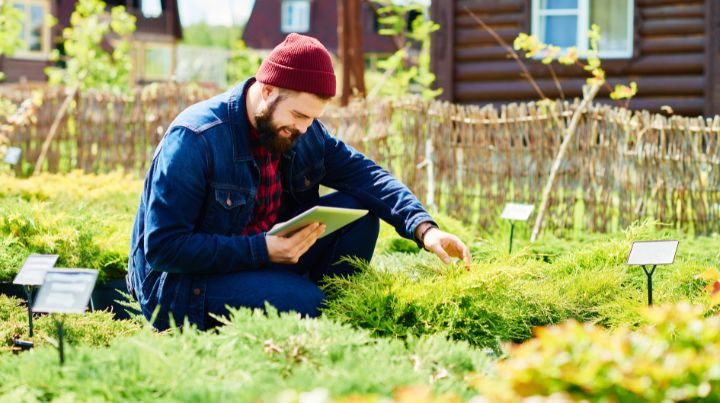
Nothing equips you for weathering troubles like the well-earned confidence that comes with mastering a helpful skill. Keeping a positive mindset is so important, especially in these days of economic unpredictability. The markers of a successful life—impressive careers, fun retirement activities, showy McMansions—that older generations experienced may not be the same for us under-45s.
But that doesn't mean we should despair (though it may mean we must ignore many of our older relatives). We need to start looking at ourselves differently and asking, what can I do that will contribute to my quality of life? Not everyone has a green thumb, but most people will find at least some enjoyment in gardening, given a chance.
Tangible skills always retain value. Most of us have very little control over what happens with the value of a dollar, our real estate investments, or whatever. Economic collapse is always within the realm of possibility. Rome fell, and one day we will too. But skills that enable you to produce your own items to barter with in the event of an economic collapse can help you ride out whatever storms are in our forecast.
And a funny thing about gardening is if you become proficient at growing your own food, you will find that you need to become proficient at processing it. Mastering one skill often leads to the mastering of many others. My suburban backyard garden of 15 years ago has led to me not only raising chickens and various kinds of livestock, but also canning, rendering, dehydrating, and fermenting. For many, a backyard garden is only the beginning of a fascinating journey.
The important thing is to start.
Additional Resources:
Related Articles
FREE Guide
Read the Best Seller
Join Mind4Survival
Stay informed by joining the Mind4Survival! 100% Secure! 0% Spam!
Affiliate Disclosure...
Mind4Survival is a free, reader-supported information resource. If you make a purchase through our link, we may, at no cost to you, receive an affiliate commission.
Do You Want To Be Ready No Matter What?

Download our free 39-page guide with interactive, 7-Day Emergency Kit Checklist and take the first step toward real preparedness.
- Know exactly where to start.
- Save time and money.
- How-to build a complete Basic Emergency Kit.
- Level up your safety and security.
Join Mind4Survival
Stay informed by joining the Mind4Survival! 100% Secure! 0% Spam!



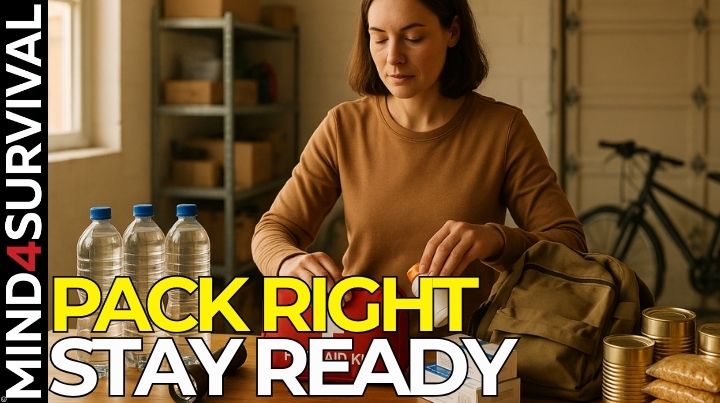


Good article. Everyone should garden – for all of the reasons listed. The #4 reason is one that caught me off guard when I first started gardening. It is amazing how good vegetables taste when you grow your own. Part of that comes from not using a lot of fertilizers what corporate farms have to in order to produce the large quantities they do.